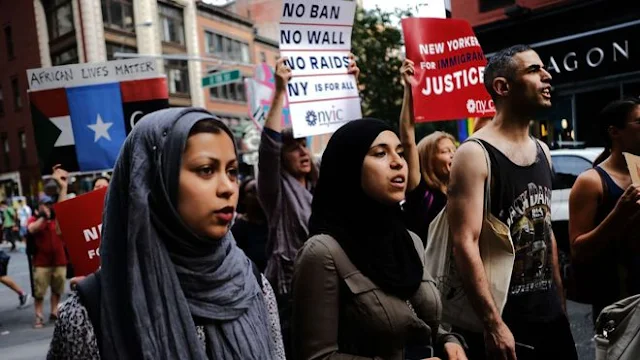A man has been arrested in Paris after trying to drive his vehicle into a crowd outside a mosque, police say.
The incident took place at about 18:30 local time (16:30 GMT) in the suburb of Créteil and no-one was hurt.
The man was apparently thwarted by barriers put up to protect the mosque.
The suspect's motives remain unclear but Le Parisien newspaper reported that he was of Armenian origin and had said he wanted to avenge Islamist-linked attacks in Paris.
Europe has seen a number of vehicle attacks in the past year, many by those claiming allegiance to IS.
A police statement said the suspect's 4x4 vehicle repeatedly struck bollards and barriers designed to protect the mosque in the south-eastern suburb of the French capital.
The car sped off but crashed and the man fled before being arrested shortly afterwards.
He did not appear to be acting under the influence of drugs or alcohol, Le Parisien said.
It reported that the suspect had said he wanted to avenge attacks on the Bataclan theatre and Champs-Élysées, both linked to so-called Islamic State.
France remains under a state of emergency, in place since attacks on the capital in November 2015, including at the Bataclan theatre, claimed 130 lives.
In April, a gunman killed police officer Xavier Jugelé on the Champs-Élysées before being shot dead. A note defending IS was found near his body.
Timeline: Vehicle ramming attacks in Europe
- 14 July 2016, Nice, France: A man drove a lorry for 2km (1.2 miles) through a large crowd gathered to watch Bastille Day fireworks in Nice. Eighty-six people were killed, and more than 300 injured
- 19 December 2016, Berlin, Germany: A man drove a lorry through the crowded Breitscheidplatz Christmas market, killing 12 people and injuring 49. IS said one of its "soldiers" carried out the attack
- 22 March 2017, London, UK: Six people died and at least 50 were injured when a car mounted the pavement on London's Westminster Bridge and drove at high speed through pedestrians. The attacker then entered the parliament complex on foot and fatally stabbed a police officer, before being shot
- April 7 2017, Stockholm, Sweden: Four people were killed when a lorry crashed into the front of a department store. The Uzbek driver was arrested and confessed to a "terrorist crime"
- 3 June 2017, London, UK: Eight people were killed when three attackers drove a van into pedestrians on London Bridge and launched a knife attack in Borough Market. The attackers were shot dead
- 19 June 2017, London, UK: A man was arrested on suspicion of terror offences after he drove a van into a group of worshippers close to a mosque in north London. One man died
bBBC NEWS















